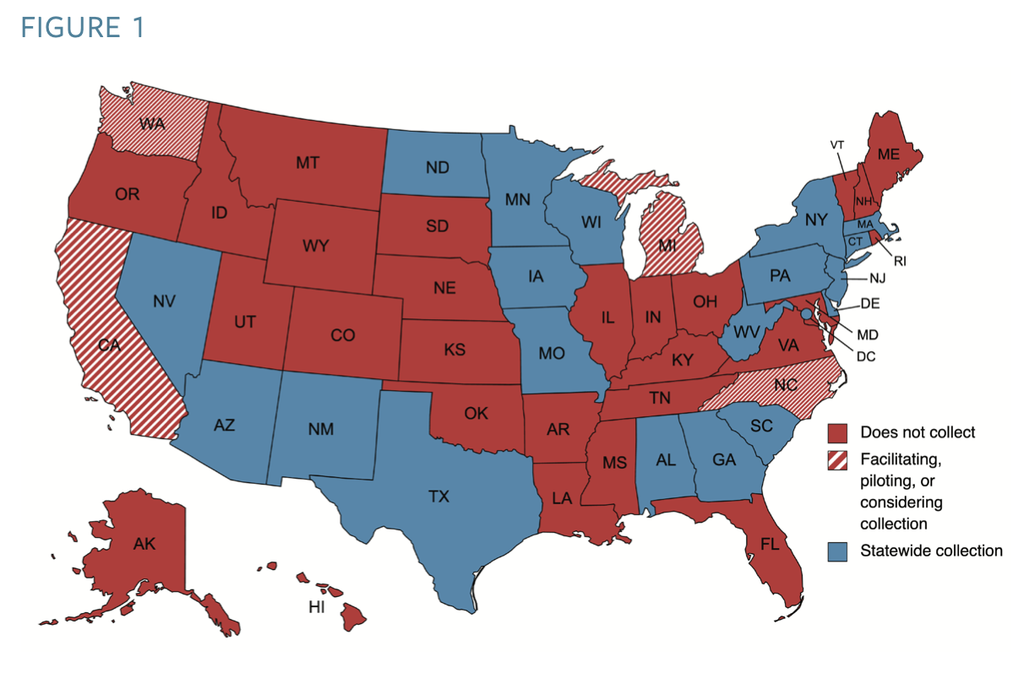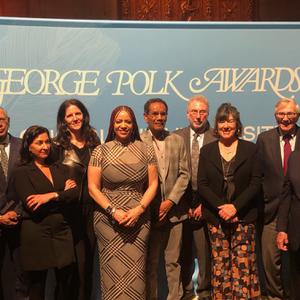A new report from Berkeley Law’s Death Penalty Clinic finds that just 19 states collect race and ethnicity information from prospective jurors, meaning that a majority of states cannot ensure that their juries are a “representative cross-section of the community” as mandated by the Constitution. The report, Guess Who’s Coming to Jury Duty?, recommends that all states “adopt a uniform questionnaire” to obtain prospective jurors’ race or ethnicity and that state courts annually publish “aggregated, anonymized race/ethnicity data” for litigants and researchers investigating jury composition. The work builds on the Clinic’s 2020 report, Whitewashing the Jury Box, which found that California had failed to hold state prosecutors accountable for disproportionately striking Black and Latine prospective jurors. The California legislature passed a statute in 2020 to improve jury selection based on that report’s recommendations.
The Constitution commands that a jury “be a body truly representative of the community” in order to fairly assess the state’s case against the defendant. The Supreme Court held in Taylor v. Louisiana (1975) that the jury “guard[s] against the exercise of arbitrary power”; it uses “the common sense judgment of the community as a hedge against the overzealous or mistaken prosecutor…or perhaps overconditioned or biased response of a judge.” However, this service “is not provided if the jury pool is made up of only special segments of the populace or if large, distinctive groups are excluded from the pool.”
In Batson v. Kentucky (1986), the Supreme Court recognized that prosecutors across the country systematically excluded people of color, particularly Black people, from juries. The Court held that race-based strikes were unconstitutional under the Sixth and Fourteenth Amendments, and created a three-step inquiry for trial courts to assess whether a strike carried racial bias. However, the Clinic’s 2020 report built on decades of research showing that rather than preventing prosecutors from striking jurors of color, the Batson framework just incentivized prosecutors to invent “neutral” reasons for their strikes. Trial courts often accepted these reasons wholesale, and appellate courts rarely granted relief on Batson claims.
The Clinic identified the lack of demographic information about jury pools as a key barrier to assessing Batson claims, and set out to document the landscape of jury questionnaires in the United States. Report authors Professor Elisabeth Semel, clinic paralegal Lauren Havey, and law students Willy Ramirez, Yara Slaton, and Casey Jang faced a bureaucratic labyrinth in compiling data. They found no consistent approach to gathering demographic information about prospective jurors. Some states asked for a person’s race when issuing a jury summons, others asked when a person appeared in court for jury selection, and others drew data from DMV records. Some states allowed people to write in their identification, while others used checklists of varying degrees of detail. The source of the practice could be a statute, a court rule, or an informal policy; the researchers found that some locations collected race and ethnicity data with no documented requirement to do so. However, only 19 states, the District of Columbia, and the federal courts collected the data at all, and only 16 states shared that data with the trial judge and defense counsel. Though states have trended towards collecting data, “the long-term pace has been glacial.”

The report finds that the failure to collect race and ethnicity information from prospective jurors compounds the problems with Batson, as defense counsel and courts cannot assess whether a state’s juries are as diverse as its population, or even whether an individual prospective juror is a person of color. The researchers argue that the 31 states that do not collect this information “are willfully ignorant of the composition of their venires, effectively rejecting their constitutional obligation to ensure a fair cross-section and hamstringing defendants’ efforts to vindicate their Sixth and Fourteenth Amendment rights.” The lack of identification also results in problematic guesswork about a prospective juror’s race based on physical and social stereotypes. As a result, the report proposes that all states adopt a uniform questionnaire for prospective jurors that conforms to the U.S. Census race and ethnicity categories, and use that questionnaire to generate yearly statistics. Those statistics will help the legal system identify and correct unjust and racist patterns in jury selection.
Racial discrimination in jury selection has been a hallmark of death penalty cases with Black defendants, with many Black prisoners still on death row who were convicted by all-white juries. The issue gained renewed attention worldwide in 2019 when the Supreme Court ruled in favor of Curtis Flowers, who had four death sentences reversed for prosecutorial misconduct before he was exonerated. The prosecutor, Doug Evans, had struck 41 of 42 prospective Black jurors across six capital trials. DPIC has identified at least 68 reversals in death penalty cases based on Batson. On February 28, a North Carolina trial court will hear death row prisoner Hasson Bacote’s claims that racial discrimination in jury selection played a role in his capital sentencing. Mr. Bacote’s attorneys will present evidence showing that North Carolina prosecutors strike Black jurors at more than twice the rate of other jurors, and that the prosecutor in his case struck Black jurors at 10 times the rate of other jurors.
Sources
Elisabeth Semel, Willy Ramirez, Yara Slaton, Casey Yang, and Lauren Havey, Guess Who’s Coming to Jury Duty?: How the Failure to Collect Juror Demographic Data Contributes to Whitewashing the Jury Box, Berkeley Law Death Penalty Clinic (2024); Elisabeth Semel, Dagen Downard, Emma Tolman, Anne Weis, Danielle Craig, and Chelsea Hanlock, Whitewashing the Jury Box: How California Perpetuates the Discriminatory Exclusion of Black and Latinx Jurors, Berkeley Law Death Penalty Clinic (2020); Flowers v. Mississippi (2019); Batson v. Kentucky (1986); Taylor v. Louisiana (1975).




